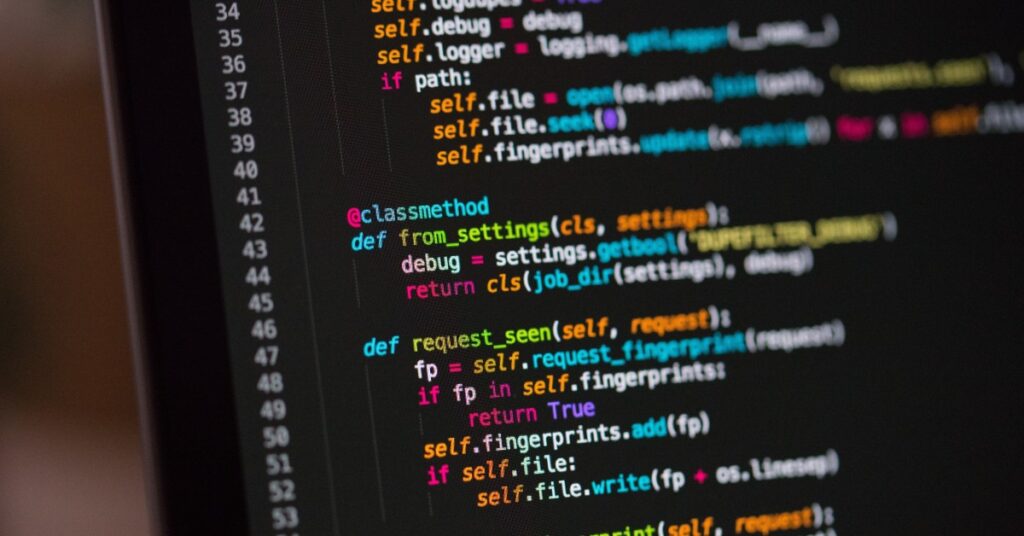
Where Do Epidemiologists Work?
Epidemiologists work in many settings, including hospitals, universities, and federal, [...]

For better or for worse, policy shapes how children learn in the United States. Educational policies dictate:
To some degree, just about everything in education follows policy decisions made by administrators, local and state governments, and the US Department of Education. Policymakers don’t make these decisions in a vacuum. Data drives their choices.
Policy analysts find, scrutinize, and draw conclusions from that data. Education policy analysts measure the success or failure of existing policies and model how proposed policies will affect students, teachers, budgets, and districts. They also look at challenges faced by schools, districts, or regions and design actionable policy-based solutions.
It’s not the easiest job. It can be heart-wrenching when budget constraints render solutions impossible to implement. It’s also not the highest-paying role in education—the average education policy analyst salary is about $60,000. However, if you want to have the biggest possible positive impact on students’ and teachers’ lives, it’s a career you should check out.
In this article about how to become an education policy analyst, we cover:
Educational policy analyst may not be the first title that jumps to mind when people think about education jobs. Even so, analysts play an important behind-the-scenes role. These professionals:
Some education policy analysts perform these functions at the local level, for a single school, district, or region. Others work at the state level or for federal government agencies.
After becoming an education policy analyst, you might look at how teacher compensation affects student achievement in underfunded districts or whether integrating technology into schools can enhance teacher performance across the board. Some policy analysts specialize in education finance. There are education policy analysts whose work focuses on making higher education more accessible to Americans. Others seek ways to ensure that differently abled students are given the same educational opportunities as their peers.
Education policy analysts are highly influential. At both the local and the federal levels, their work leads to changes that impact generations of students’ experiences. They may not set policy or make laws, but they are there in the background, holding sway over those who do.
| University and Program Name | Learn More |
|
Merrimack College:
Master of Education in Teacher Education
|
|
|
American University:
Masters in Education Policy and Leadership
|
The day-to-day work of education policy analysts can involve everything from conducting research to helping to draft laws. According to the US Bureau of Labor Statistics, “policy analysts work to influence political and social decisions. Although their tasks vary, most policy analysts work in one or more of four areas: collecting information, analyzing potential policies and making recommendations, evaluating the outcomes of existing policies, and sharing information with the public and government officials.”
When you become an education policy analyst, your responsibilities vary depending on where you work and in what capacity. If you take an education policy analyst job with a school district, you will spend your days analyzing issues affecting teachers and students at the local level, such as class sizes, diversity in education programs, and educator shortages. If you work for the state, you might assess the effectiveness of exams that measure teacher performance or student proficiency. And if you work at the federal level, your job might involve looking at the potential impact of education-focused bills and resolutions.
Simply put, they want to improve education, and they want to do it on a grand scale. One teacher can reach 30 or 40 kids each year. Administrators can have a positive impact on a few thousand students. Education policy analysts transform districts, shape how students learn in an entire state, or even drive education reform at the federal level. As Boston College‘s Lynch School of Education and Human Development puts it in the program notes for its MEd in Educational Leadership and Policy, “While teachers work directly with students, educational leaders work to improve the systems serving students, their families, and communities.”
This is a tough question to answer because many employers don’t list specific education requirements for applicants. Job listings for education policy analysts frequently ask that applicants have qualifications like:
However, you can’t go wrong with a bachelor’s degree related to education or education policy (which some schools offer as an undergraduate major) plus a graduate degree in education policy. You might not need a master’s degree in education policy to launch a career in this space—especially if you have professional experience in policy analysis or public policy research—but having one will never be a detriment. You could pursue a part-time or full-time degree in public policy, policy affairs, policy analysis, or public administration, but if you’re sure you want to work in education, look into the Master of Arts in Education Policy, Master of Education in Education Policy, PhD in Education Policy, and similar degrees.
There is a trade-off to keep in mind as you look into advanced degree programs, however—especially if the programs you’re considering require you to take on significant student loans. “Those who enter the workforce with a master’s typically start with higher salaries, but there is an opportunity cost associated with attending school for one to three extra years,” writes one Redditor in a thread about becoming a policy analyst. “Which decision is ‘better’ varies. I don’t believe a PhD is necessary or worthwhile for this career due to the opportunity costs associated with entering the workforce four or five years later. For example, I earn more than my colleague who has a PhD since I had four extra years to ‘work my way up’ our company’s salary ladder.”
There’s not much data available regarding the professional experience education policy analysts typically bring to the table. Some sources claim that analysts usually have classroom experience. That makes sense; working as a teacher before becoming an education policy analyst can undoubtedly give you a more thorough understanding of what students and teachers need to succeed. Other sources suggest that aspiring educational policy analysts should work in administrative roles first, so they understand how things like funding and laws impact student achievement and school outcomes.
The reality is that teaching or administrative experience alone won’t turn you into an effective education policy analyst. Neither will policy analysis experience in another field. Education policy analysts need to understand the complexities of modern education and skills related to research, quantitative analysis, finance, and law.
In general, aspiring education policy analysts should have a grasp of:
Because education policy analysts tackle varied challenges (depending on whom they work for), however, it’s almost impossible to draw up a shortlist of the qualifications educational policy analysts need. Luckily, job listings can help you get a sense of what employers are looking for and guide you as you make academic and professional choices. Let’s look at two examples of qualifications requested by employers taken from actual job listings:
Given how different education policy jobs can be, you should try to master as many skills related to policy analysis as possible, as early in your career as possible. That will make you more marketable than the competition, which is always a good thing.
Some people who study education policy end up in administrative roles in schools or districts. However, there are many policy roles you should explore. Your title might be educational policy analyst, or you might work in policy analysis in several different roles. According to American University‘s School of Education, which offers an MEd in Education Policy and Leadership, a master’s degree in education policy can lead to careers in nonprofit leadership, curriculum consulting, and even politics. Graduates of Harvard University‘s education policy and management master’s program, for example, “work for state and federal departments of education, they launch and lead nonprofit organizations and school-community partnerships, they conduct research and data analysis for policy think tanks, and they lead progressive schools.”
You can take steps before you ever enroll in an education policy degree program to get started in this field. For instance, you can:
You may also benefit from subscribing to education journals, following or joining professional organizations like the American Council on Education, and staying up-to-date on the latest trends in pedagogy, educational psychology, and other factors that drive policy.
Finally, start networking now. If your career goals involve working with school and community leaders or politicians and policy experts, you need to build connections as soon as you can. That way, when you do have the degrees and experience you need to become an education policy analyst, you’ll find lots of open doors.
Questions or feedback? Email editor@noodle.com

Epidemiologists work in many settings, including hospitals, universities, and federal, [...]

Computer and information systems managers are enjoying explosive job demand. [...]

If being a cyber security manager is your goal, you [...]

All health data analysts sift and sort data to cull [...]

You can enroll in a joint degree or dual degree [...]
Categorized as: Educational Leadership & Policy, Education & Teaching